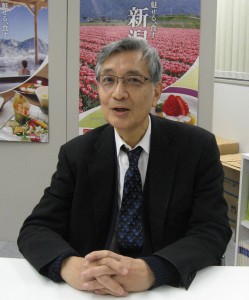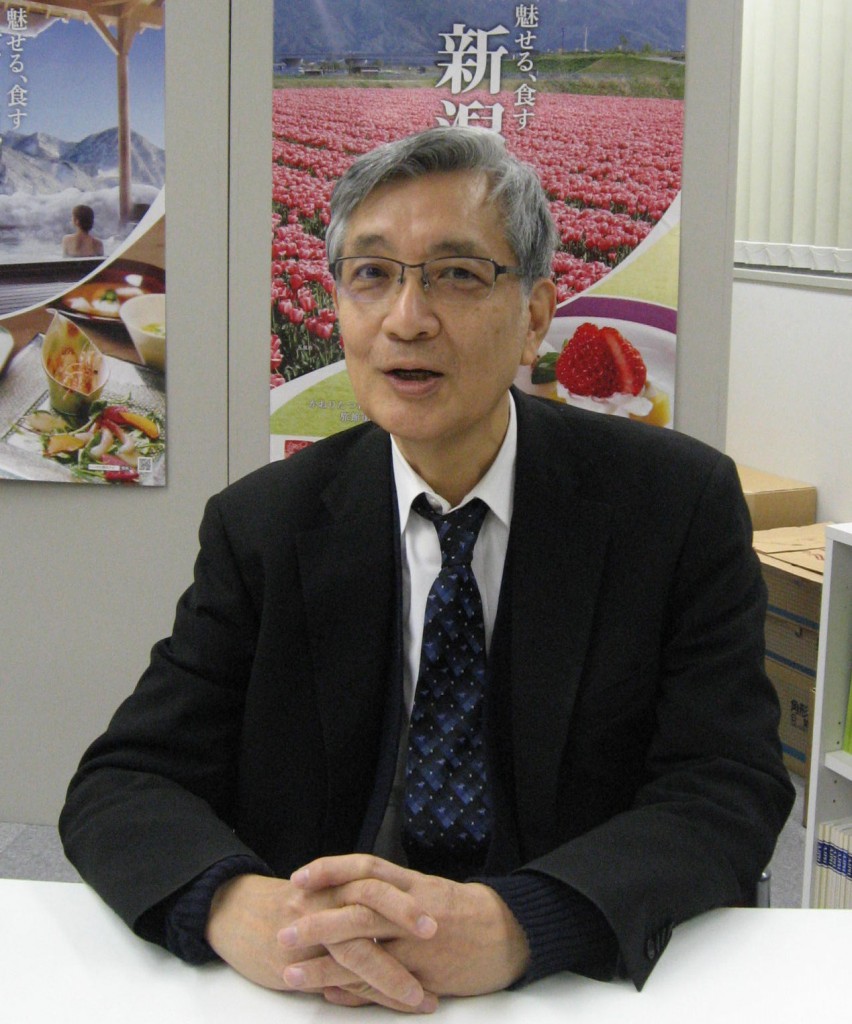Interview series: “Environmental pollution and solutions in Japan” Vol.2 (Dr. Takashi Inoguchi, President of the University of Niigata Prefecture)
 In this second part of our interview with Dr. Takashi Inoguchi, president of the University of Niigata Prefecture, we spoke with him about the current state of and issues with environmental technology transfer in Japan.
In this second part of our interview with Dr. Takashi Inoguchi, president of the University of Niigata Prefecture, we spoke with him about the current state of and issues with environmental technology transfer in Japan.
FPCJ: Japan has experienced severe air and water pollution, but has managed to overcome them. What should be done to apply this experience to solving issues in other Asian countries?
Dr. Inoguchi: I question the value of using the Western concept of attempting to conquer nature. There are many places in Southeast Asia with a mixture of swamps and forests. In order to use those areas as industrial or agricultural land, they just burn everything in the way. This has caused serious air pollution in Southeast Asia. It is a different type of air pollution than China’s from burning coal. I believe there are other methods to use peatland, aside from burning or filling it in blindly. It is likely necessary for Japanese geologists and specialists in developing arable land to apply their knowledge.
The water quality of rivers also has to be improved. One thing that Japan learned from experience was that “If a river gets polluted, it ruins everything.” For waste disposal, it is easy to control the waste from factories, but it is difficult to control the waste from households. There are a lot of people who don’t follow the rules and don’t understand the importance of proper disposal.
In the 1930s, German established a law in an attempt to eliminate waste from neighboring countries, but Hungarian law defined waste differently than Germany. Things that were considered waste in Germany were completely ignored. For example, paper could be recycled, and cans and metal lids weren’t waste because they could be sold. The same logic applied to pig manure.
Moving forward, I believe household waste in particular will become a problem. Wastewater from households also has harmful chemicals in it, such as those from detergents. In order to deal with this, Japan will have to bring over its advanced environmental technology.
FPCJ: Japan has a lot of excellent technology, such as its desulfurization equipment, but according to a survey by the Ministry of the Environment many companies are reluctant about technology transfer abroad. This is due to issues with intellectual property protection in countries such as China.
Dr. Inoguchi: Chinese law isn’t strict about punishing intellectual property rights violations, so Japanese companies that make pollution prevention equipment are reluctant to transfer technology to China. Japanese companies invest a lot of money into research and development of products, and are not content with having their intellectual property rights ignored.
Southeast Asian countries also don’t have proper protection for intellectual property in their domestic laws. I believe the only solution is for Asian governments to not only be members of international agreements on intellectual property rights, but also to create enforceable laws within their countries. Southeast Asian countries, Kazakhstan and China are all serious about dealing with environmental issues, but without serious intellectual property protection Japanese companies probably won’t join in.
FPCJ: Are there differences in technology transfer with China, considering the current rocky relations, and with India, which has friendlier relations with Japan?
Dr. Inoguchi: There may be to some extent, but concessions are unacceptable when it comes to important areas. Even when it comes to nuclear power, any country can achieve quite a high technological level if they put in a serious effort. Japan doesn’t have very many specialists, and so is rather restrained when it comes to nuclear power.
FPCJ: What is necessary to solve environmental problems internationally?
Dr. Inoguchi: Education is definitely important to solve environmental problems. I think it is necessary to invite Chinese bureaucrats and citizens to Japan, and educate them about the environment. Pollution is caused by both industry and households, and as income increases, the degree of pollution from households worsens. It is not an issue of educating a portion of the economic elite. Educating average citizens is difficult, and takes time.
FPCJ: How should environmental education be carried out?
Dr. Inoguchi: One option is leaving it up to the United Nations Environment Programme or JICA’s Senior Advisors and Japan Overseas Cooperation Volunteers. Japanese universities also collaborate with foreign universities to hold lectures and discussions, in order to exchange information and find solutions to problems. It is mainly engineering and agricultural faculties that are working on environmental problems, but it might be beneficial for art faculties to participate by using harmony with nature as a theme.



